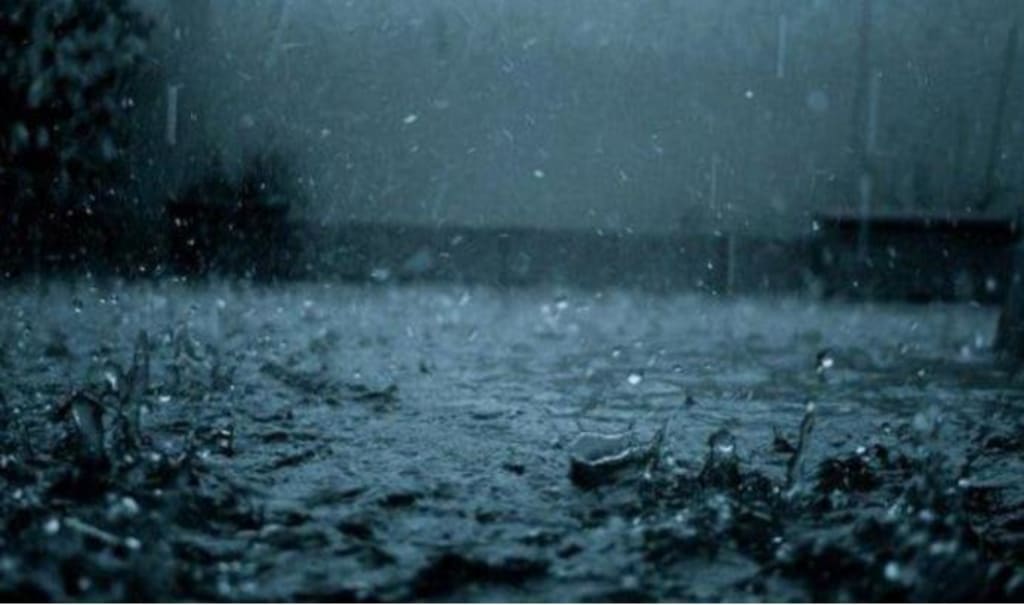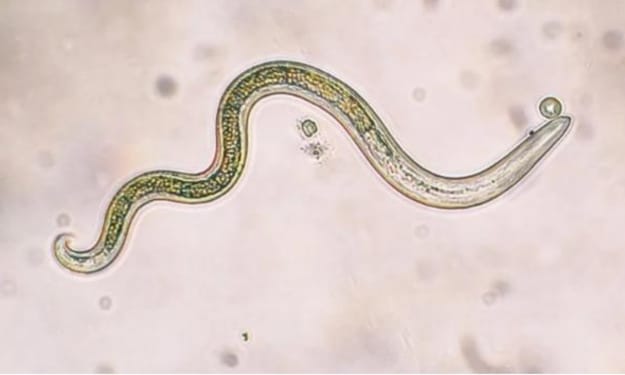If it rains for 10,000 years, will humans go extinct? The ancient earth really appeared
Did the ancient earth really exist?

Compared with the relatively cold north, there is always more rain in the south, which also makes the north relatively dry, while the south is relatively humid. It can also be seen from this point that the temperature actually determines the probability of rain.
For example, in the winter in the north, because the temperature is below zero for a long time, basically it will not rain in the winter in the north, but will often usher in ice and snow weather.
In the south in winter, although the temperature also drops, it is not cold enough. Therefore, many cities in the south do not have snow. Even in winter, it will rain, and because of low temperature and frequent rain, It will actually make the winter in the south more difficult, because the wet and cold weather is really sad.
However, generally speaking, the rain will stop for only a few days at most. Then, if one day in the future, it will continue to rain on the earth, and the heavy rain will not stop for tens of thousands of years. What impact will it have on life and human beings?
What if the Earth continued to rain for 10,000 years?
Let's first look at what rain is. We all know that there is a perfect water circulation system on the earth. Generally speaking, when water vapor enters the upper atmosphere, once it meets the cold air, it will become small water droplets, and these small water droplets will fall on the ground. became rain.
To put it simply, this process is also called "raining". As a very common natural phenomenon on the earth, although there is usually some water in the potholes on the ground after a heavy rain, generally as long as The sun comes out, and it won't be long before these accumulated water will slowly pass through the water circulation system again and return to the air again.
It can be said that because of the water circulation system on the earth at night, the earth has abundant liquid water and life. Otherwise, if the temperature on the earth is very high, like Venus, the water on the surface will dry up, which also leads to water circulation. It cannot operate normally, so the water vapor cannot condense into raindrops at high altitudes.
Maybe some friends will notice that with the influence of the earth's climate and environment, as the earth is getting warmer, there will be more and more rain in many places on the earth. will become more frequent.
On the one hand, because of global warming, the global warming effect has become more and more serious, and a large number of glaciers have melted, causing meltwater to enter the ocean, etc., and the sea level rises, resulting in flood disasters.
On the other hand, because the high temperature makes it easier to rain, the earth may also usher in a longer limit in the future. However, in general, if it encounters continuous rainy days, the next many days will be the limit. Of course, in this process, it does not mean that there will never be a time when the rain stops in the middle.
So, what if there really isn't? If one day in the future, the climate on the earth completely breaks through the critical point, and it starts to rain all over the world, and it does not stop for 10,000 years, what should human beings do?
For this problem, if it does happen one day in the future, then, for human beings, it will basically be the "end of the world", because the continuous rain will inevitably lead to the collapse of the global ecosystem. Naturally, the first Six mass extinctions of life are inevitable, and whether human beings can survive this long and heavy rain is a question.
Why do you say that? We all know that in terms of agricultural production, the most feared are droughts and floods. In short, the raining time is too short and the rain is too little, which will cause the crops to not absorb enough water, and naturally, they will not be able to develop well. easy to die of drought.
And if it rains for too long, it will cause crops to absorb too much water and drown. Naturally, no matter what kind of rain it is, for agricultural production, it will lead to a large-scale reduction in food production.
What does this mean? Let's take a look at the world's hunger today. According to an annual research report published by the United Nations in July last year, according to data, the number of hungry people on the earth continues to increase every year. For example, in 2019, the number of hungry people in the world will be approximately It is about 690 million, and in 2018, this data was 680 million.
This also means that the growth of at least 10 million hungry people every year is obviously a problem that is difficult to control and solve for human beings.
In 2020, compared with 2019, the data on the number of hungry people in the world will increase by at least 83 million to 130 million people. From this, it can be seen that the increase this time seems to be a "sit down". "Roller coaster", and suddenly reached a new peak.
Today, this data is still continuing to grow. This is because the earth has not ushered in large-scale frequent rains or large-scale droughts. If the earth will really rain on a global scale in the future, it will continue to rain for 10,000 years. Then, for human beings, there is no doubt that it is the beginning of destruction.
Continued rain or the destruction of human civilization?
If the earth has really continued to rain for 10,000 years, only from the perspective of agricultural development, it means that human agricultural development has already collapsed, and naturally, human beings will not be able to obtain enough food. There is a saying It is called "people take food as the sky", which also means that if human beings have no food, then the same is true for other creatures.
You must know that it is not only crops that need proper rainwater, but also plants on the earth. Plants are the bottom of the ecological chain and are also related to the sustainable evolution and stability of life on earth.
If crops and plants on the earth disappear on a large scale, then humans and herbivores will also lose their food sources. When a large number of people are starved to death, a large number of herbivores will become extinct, and ultimately, carnivores will not be able to Survived, so, it may not take 10,000 years, and there may be countless deaths on earth.
Of course, in the early days of this disaster, when scientists found that the situation was out of control, they would find a way to escape for human beings like in a sci-fi movie. However, generally this escape method would not be All mankind survived, but the continuation of the fire of mankind will be achieved by sacrificing the majority.
For example, in the first few hundred years, we tried to find a way for a few people to immigrate to the moon and Mars. At the same time, we developed some indoor crops on the earth, and found food that can replace food for human beings, so as to ensure that human beings can survive in the short term. Not all will perish.
At the same time, humans also need to keep leaving their homes. After all, heavy rain will cause the sea level to rise faster and faster. Therefore, some residents in coastal areas and low-lying areas will lose their homes. However, for the vast majority of people In other words, unless they are officially resettled, they will not be able to leave, which also means that more people will die.
In addition, because heavy rain will cause the earth to be in rainy days for a long time, the lack of sunlight will also cause the earth's climate to get worse and worse. At the same time, rainy days will also lead to the growth of more microorganisms, which will lead to human beings and among living things on the earth. , there will be a large-scale spread of infectious diseases, which also means destruction to human beings.
In other words, there is no need for the heavy rain that lasts for 10,000 years on the earth, it may only be in the next few years, and the above-mentioned things will happen one after another.
Does it seem like rain is too annoying? However, for the early Earth, the situation is quite the opposite. Some people believe that it may be because of the continuous rain on the early Earth that life on the earth was born.
There was a million-year heavy rain on the early Earth
Modern scientific research has found that the climate environment on the early earth was not as habitable as it is today. What is the concept? To put it simply, the climate and environment on the early earth were very terrifying. Scientists call this period the "dark age" of the earth.
According to the data, the temperature on the earth at that time was hundreds of degrees Celsius, even higher than the temperature of Venus. This situation continued until about 4.1 billion years ago. At this time, the earth ushered in a new round of Comet impact, we all know that comets are "dirty snowballs" in the eyes of scientists.
The arrival of the comet brought a lot of water to the earth, and at the same time, it also cooled the earth, and finally cooled down a little bit, and began to have a primitive ocean. At the same time, it also accumulated little by little in the primitive ocean, and finally gave birth to life.
Of course, in the history of the earth, there has not only been this heavy rain that lasted for millions of years. At the end of the Permian period, the earth once experienced a terrible greenhouse effect. However, this greenhouse effect has been studied and studied. It is believed that it may be related to a large-scale volcanic eruption, which caused global warming, and even the sea water boiled.
When the earth's climate and environment broke through the critical point, a heavy rain followed. Millions of years of heavy rain killed a large number of creatures, and the survivors also ushered in a new era. After that, in the middle and late Triassic, dinosaurs appeared. , the earth has also entered a new era.
Therefore, there is a view that human beings living on the earth have never actually been the masters of the earth. If human beings go their own way and wreak havoc on the climate and environment of the earth, it will not be long before the earth breaks through the climate critical point one day. There will really be a heavy rain that lasts for tens of thousands of years, or even longer, and human beings, obviously, can't get out of it, what do you think?
About the Creator
nally norris
Science needs fantasy, invention is expensive






Comments
There are no comments for this story
Be the first to respond and start the conversation.